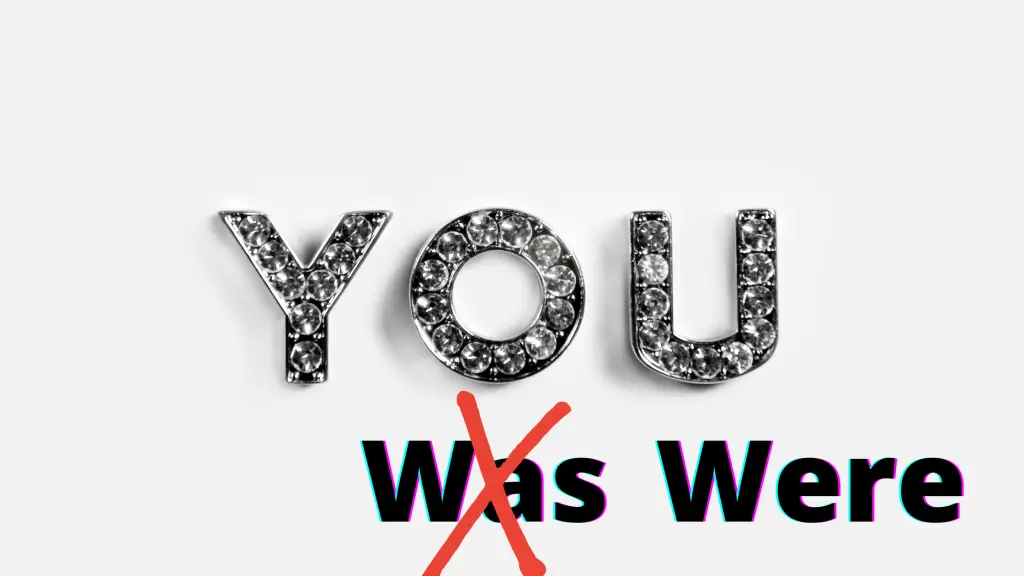“You were” is grammatically correct in English. “You was” is nonstandard English which means that it is used in some parts of the English world. It is fine to use “you was” in spoken language but you should use “you were” in formal or academic English.
I was
You were
He was
She was
We were
They were
You were
“You were” is the second person singular of the verb “to be” in the past simple tense.
You were at the party last night.
Were you with John?
You was
“You was” is incorrect and should not be used in English. You will hear people saying “You was” in different parts of the English-speaking world(Mostly in the North of England in my experience).
Do not use “you was” if you are a non-native English speaker as people will try to correct your English. Many people in the North of England use “you was” instead of “you were”.
There are also people in the United States who use “you was”.
How do you use “you were” in a sentence?
You can use “you were” in a sentence when you need a past simple form of the verb “to be”.
”You were” is usually at the beginning of a sentence or clause.
If you want to ask a question with “you were” then all you need to do is to invert the subject and the verb(Were you….?).
I told you that you were beautiful.
Were you at the cinema yesterday?
Here I have some questions that I have received since I first wrote this article from readers so I will answer them now:
1. Are there any other exceptions to the rule of using “you were” in formal English, besides the ones mentioned in the article?
- Yes, there can be other subtle exceptions. One instance is within indirect questions: “I wondered if you were going to the party.” Here, “you were” remains correct despite the question format.
2. How did the use of “you was” come about in informal language? Is it related to any particular dialects or accents?
- The use of “you was” likely stems from how verb conjugations sometimes simplify in casual speech. Many regional dialects and accents across the English-speaking world exhibit some degree of this simplification.
3. Does the use of “you was” ever have any negative connotations, such as making the speaker sound uneducated or impolite?
- Unfortunately, yes. While “you was” is common in informal settings, it deviates from standard grammatical conventions. In more formal situations (like job interviews or writing), it’s likely to be perceived negatively as a sign of poor language skills.
- “How Was Your Weekend?” Alternative Ways to Improve Your Conversations - February 19, 2024
- On Monday or Monday? What’s the Difference? - December 1, 2023
- 20 Alternative Ways to say “Thanks for the Heads Up”(+ Meaning) - November 30, 2023

